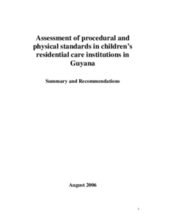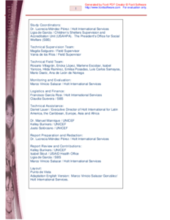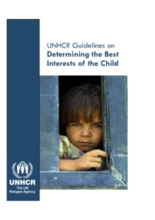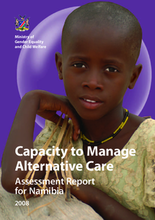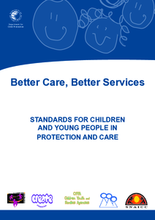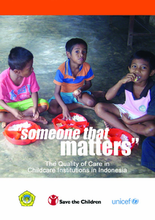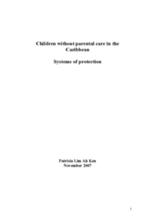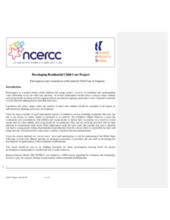Displaying 211 - 220 of 281
Examines the capacity of childcare institutions and the monitoring and reintegration meausures necessary to ensure child safety in such.
Assesses the causes and realities of children living in institutions in Guatemala with recommendations for systemic reform.
Provides a formal mechanism to determine the best interests of the child as a mechanism within a child protection system
This report prepared for the Ministry of Gender Equality and Child Welfare (MGECW) with financial support from UNICEF Namibia assesses the country’s capacity to manage alternative care systems for children.
This document sets forth key standards through which child and youth protection, particularly in regards to foster care, will be approached in Western Australia.
Guidance and preconditions on use of Best Interests Determination for unaccompanied and separated children
Examines practice of using institutional care for children in poverty and recommends alternative responses to maintain families.
Comprehensive evaluation of national responses and level of care standards for children without parental care in Indonesia.
A regional assessment of responses to children outside parental care in the Caribbean. Extensive research on successful examples of alternative care. Includes recommendations and lessons learned.
This report aims to provide insight into children’s perceptions of participation within England’s residential care system, and to note any potential or perceived barriers to participation.

